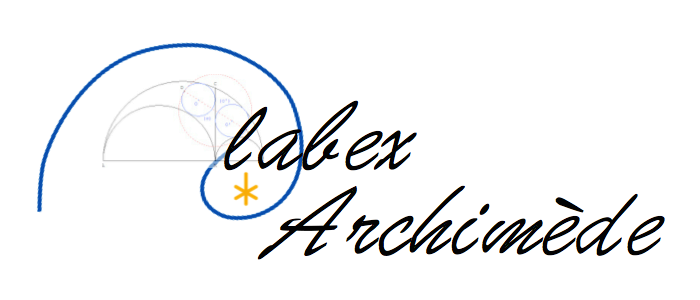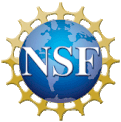Advances in Statistical Mechanics
Avancées en mécanique statistique
27 – 31 August, 2018
|
Scientific Committee
Comité scientifique Gérard Ben Arous (New York University) |
Organizing Committee
Comité d’organisation Louis-Pierre Arguin (Baruch College & Graduate Center CUNY) Véronique Gayrard (Aix-Marseille Université) Nicola Kistler (Goethe University Frankfurt) Irina Kourkova (Université Pierre et Marie Curie) |
|
Statistical mechanics is one of the most active fields of research in probability and mathematical physics. The meeting has the objectives of bringing together world experts in the field to assess the current state of research and to identify key questions for the new generations of researchers. The emphasis will be on fundamental issues of equilibrium and dynamics for classical and quantum mechanical systems, as well as on open problems of statistical mechanics related to probability, disordered systems, computer sciences, and biology.
The main goal of the international meeting is to summarize fundamental progress made in the last decade in the field of statistical mechanics and to identify key questions for the near future, both on statistical mechanics per se and on applications of statistical mechanics. More specically, the objectives are: – To bring together some of the world experts in probability and mathematical physics to outline the state-of-the-art in key subjects area of equilibrium and non-equilibrium classical and quantum statistical mechanics of both disordered and non-disordered systems. – Identify the new challenges of statistical mechanics with an emphasis on its impact on probability theory, biology, and computer sciences, and clarify the immediate and medium terms objectives that would pave the way to progress. – Encourage contacts between the communities of mathematicians and mathematical physicists working in statistical mechanics, biology and computer sciences. |
La mécanique statistique est l’un des champs de recherche les plus actifs en théorie des probabilités et en physique mathématique. Le but de la rencontre est de rassembler les experts mondiaux sur le sujet pour faire le point sur les avancées récentes et pour identifier les questions ouvertes importantes pour les nouvelles générations de chercheurs. L’accent de la rencontre sera mis sur les questions fondamentales d’équilibre et de dynamique des systèmes classiques et quantiques, ainsi que sur les problèmes ouverts de mécanique statistique lies aux probabilités, aux systèmes désordonnés, à l’informatique et à la biologie.
L’objectif principal de la rencontre internationale est de présenter les progrès fondamentaux des dix dernières années en mécanique statistique et d’identifier les questions charnières qui définiront les fondements du domaine dans le futur rapproché ainsi que ses applications. Les objectifs spécifiques sont: – Rassembler les experts mondiaux en probabilités et en physique-mathématique pour rendre compte des avancées dans les domaines clés de la mécanique statistique classique et quantique, pour les systèmes en équilibre, hors-équilibre, et pour les systèmes désordonnés. – Identifier les nouveaux défis de la mécanique statistique avec un accent sur son impact en théorie des probabilités, en biologie, et en informatique, ainsi que dégager les objectifs à court et moyen termes pour implanter ce programme. – Etablir de nouvelles interactions entre les communautés demathématiciens et de physiciens-mathématiciens travaillant en mécanique statistique, en biologie et en informatique. |
Vincent Beffara (Université Grenoble Alpes) Percolation methods for nodal lines (pdf)
David Belius (University of Zurich) The TAP-Plefka variational principle for mean field spin glasses
Gérard Ben Arous (New York University) Geometric description of the spherical Spin-Glass Gibbs measures and Temperature Chaos – VIDEO –
Marek Biskup (U.C.L.A) Random walk driven by Gaussian Free Field
Erwin Bolthausen (Universität Zurich) On the Gardner formula for the perceptron (pdf)
Christian Borgs (Microsoft Research New England) Graphons and Graphexes as Limits of Sparse Graphs: Part II – VIDEO –
Nicolas Champagnat (Université de Lorraine) Stochastic modeling and asymptotic analysis of a population of microorganisms with competition and horizontal transfer [I and II] (pdf)
Jennifer Chayes (Microsoft Research New England) Graphons and Graphexes as Limits of Sparse Graphs: Part I – VIDEO –
Jiří Černý (University of Vienna) Maximum of branching random walk in random environment (pdf)
Loren Coquille (Université Grenoble Alpes) Crossing a fitness valley as a metastable transition in a stochastic population model
Frank Den Hollander (Leiden University) Metastability for Glauber Dynamics on Random Graphs (pdf)
Margherita Disertori (University of Bonn) Plate-nematic phase in three dimensions
Aernout van Enter (University of Groningen) One-sided versus two-sided (pdf)
Alessandra Faggionato (Sapienza Università di Roma) Large deviations and uncertainty relations in periodically driven Markov chains with applications to stochastic thermodynamics (pdf)
Patrik Ferrari (University of Bonn) Space-time covariance of KPZ growth models – VIDEO –
Francesco Guerra ( (Sapienza Università di Roma and INFN) The replica trick in the frame of replica interpolation (pdf)
Lisa Hartung (Bonn University) From 1 to 3 and 3 to 6 in branching Brownian motion (pdf)
Dmitry Ioffe (Technion, Israel Institute of Technology) Level lines of low temperature interfaces
Abel Klein (University of California, Irvine) Manifestations of localization in the random XXZ quantum spin chain (pdf)
Christof Külske (Ruhr-Universität Bochum) Gibbs-non Gibbs transitions in different geometries: The Widom-Rowlinson model under stochastic spin flip dynamics (pdf)
Sylvie Méléard (Ecole polytechnique) Stochastic modeling and asymptotic analysis of a population of microorganisms with competition and horizontal transfer
[I and II] (pdf)
Charles Newman (New York University) Remarks on the Riemann Hypothesis (pdf) – VIDEO –
Cristina Toninelli (UPMC & Paris Diderot) Bootstrap percolation and kinetically constrained spin models: critical time scales (pdf)
Simone Warzel (Technische Universität München)












